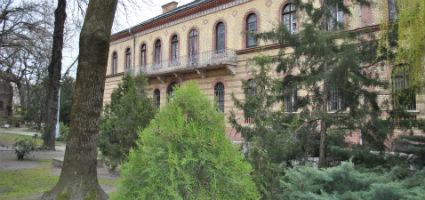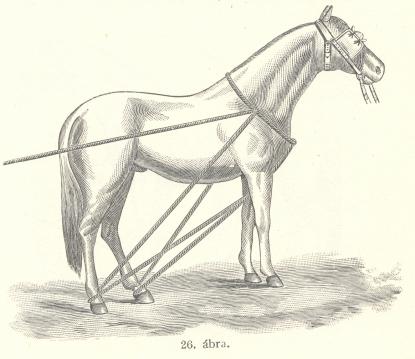2024. April 26. Friday
Collection of Veterinary History - Budapest
 |
Address: 1071, Budapest Bethlen Gábor utca 20-24. (megközelítés a portán keresztül)
Phone number: (1) 478-4226
E-mail: library@univet.hu
Opening hours: Mon-Thu 9-16
Researchers: Wed 13-16 You can also view a prior check-in at other times! |
The exhibition has closed for visitors.
2011.06.24. - 2012.07.30.
2011 is the World Veterinary Year and the Faculty of Veterinary Science, Szent Istvan University will celebrate the 225th anniversary of its foundation in September 2011.

The exhibition is part of the celebration of these two important events. It presents the world renowned achievements of Hungarian veterinary science. Diseases of domestic animals named Marek's, Aujeszky's, Köves's, Derzsy's, Preisz-Nocard disease after Hungarian veterinarians will be described as well as the Hungarian royal State Insitute for Bacteriology; it will be possible to see diagnostic and therapeutic tools and procedures the development of which was also the achievement of Hungarian veterinarians; we also get acquainted with the special veterinary pathology book by Hutÿra and Marek, translated into 11 languages and edited many times, that served as a textbook for several generations of veterinarians all over the world.
Relics from the pavilion of the Hungarian royal Veterinary College at the Paris World Exhibition in 1900 may also be seen. Hundreds of foreign students, studying at the faculty, also look upon this traditional institution as their alma mater.

The exhibition is part of the celebration of these two important events. It presents the world renowned achievements of Hungarian veterinary science. Diseases of domestic animals named Marek's, Aujeszky's, Köves's, Derzsy's, Preisz-Nocard disease after Hungarian veterinarians will be described as well as the Hungarian royal State Insitute for Bacteriology; it will be possible to see diagnostic and therapeutic tools and procedures the development of which was also the achievement of Hungarian veterinarians; we also get acquainted with the special veterinary pathology book by Hutÿra and Marek, translated into 11 languages and edited many times, that served as a textbook for several generations of veterinarians all over the world.
Relics from the pavilion of the Hungarian royal Veterinary College at the Paris World Exhibition in 1900 may also be seen. Hundreds of foreign students, studying at the faculty, also look upon this traditional institution as their alma mater.
